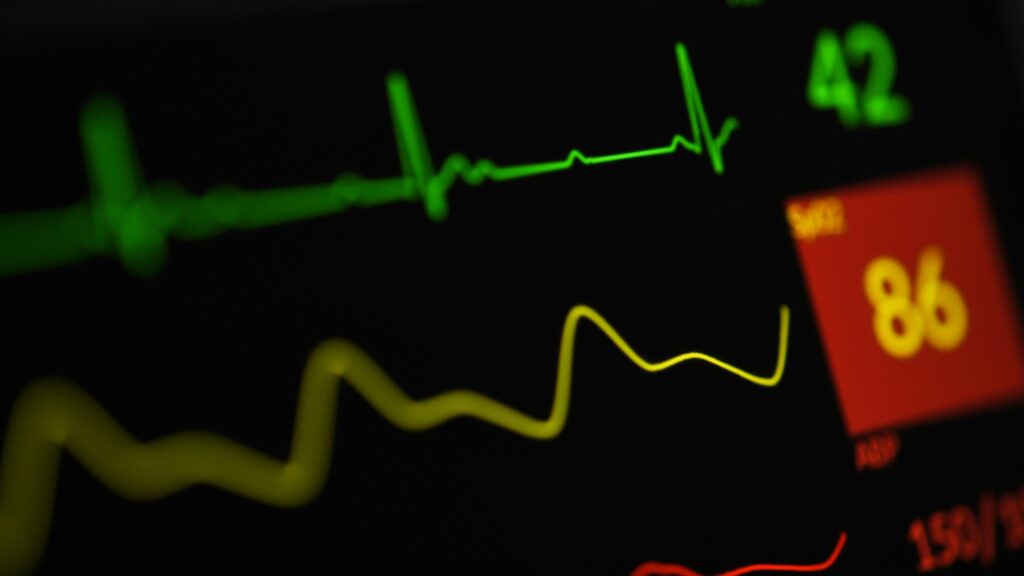Imagine Lauren Summers; she is a go-getter, always motivated, full of energy and enthusiasm, solving every task at work with vigour. But by early this year, she was utterly worn out to be a different person. She was physically, mentally and emotionally drained due to constant and prolonged stress. She used to jump out of her bed to tackle the day with a renewed sense of optimism, but lately, it’s an arduous task even to manage to pry herself away from the sheets. Lauren Summers now suffers from burnout, which leaves many people feeling empty and completely exhausted due to being exposed to constant stress levels.
Highlights
- While burnout is not recognised as a clinical disorder, it should nevertheless be taken seriously and treated as such,
- Once we recognise the warning signs and symptoms, we can easily label and identify the remedies required to reverse burnout,
- At the point of burnout, it’s easy to forget self-worth when everything around us loses meaning, purpose and sense of direction.

Burnout can leave you feeling a reduced sense of accomplishment, as well as a loss of sense of identity. Trudging along as just another cog in the machine without identifying as an essential component. Humans are not machines, and can get worn out if not taken care of. Burnout isn’t precisely a medical diagnosis; many health experts believe that depression, anxiety and other such mental health issues may cause burnout, along with environmental and individual factors. It can also make everyday activities quite challenging.
The term “burnout” was first used in 1974 by American psychologist Herbert Freudenberger in his book, Burnout: The High Cost of High Achievement. He utilised the term to highlight the consequences of severe stress and high standards for people in “helping professions”, such as doctors and nurses who put their bodies on the line and sacrifice themselves and would often end up being “burned out”. He also initially defined burnout as “the extinction of motivation or incentive, especially where one’s devotion to a cause or relationship fails to produce the desired results.” The stress that usually induces burnout arises from work-related issues, but your lifestyle may also contribute to it. It can easily affect anyone who is overworking or is subjected to constant stress and anxiety, leaving them overrun

Signs and symptoms of burnout
While burnout is not recognised as a clinical disorder, it should nevertheless be taken seriously and treated as such. Most people spend a large chunk of their lives working, and if they start to feel the stress of the job, or have taken a dislike to it and dread appearing for work and do not receive any satisfaction from it, it will prove to be a severe setback in life. Burnout occurs gradually and does not happen overnight. It slowly creeps upon us, subtle at first but progressively increasing if we miss the signs and symptoms.
Some of the most common signs of burnout are listed below
- Reduced performance: People suffering from burnout have difficulty concentrating, lack creativity and find it cumbersome to perform everyday tasks or job-related tasks. Lack of motivation also plays a part in this as burnout affects the sense of meaning association too.
- Physical and emotional alienation: Burnout leaves individuals feeling numb, making them distance themselves from work and even emotional responses. There is a complete detachment from thought and action.
- Exhaustion: Burnout is physically and emotionally draining and zaps the life force out. You may find yourself completely tired and drained most of the time.
- Immunity: Burnout lowers immunity and causes frequent illnesses. Your sense of well-being is also affected, making it easier to fall sick.
- Change in appetite and sleeping habits: Burnout meddles with diet and sleep schedule. While burned out, you may stop craving food owing to the overwhelming numbness. Sleep takes a back seat, and are only compelled to sleep when the body can’t take it anymore, thus, throwing everyday schedules in complete disarray.
- Cynical and negative outlook: Burnout makes us cynical as we’re driven to the point where life and activities lose all meaning. There is no more optimism or enthusiasm to take us through life, but it’s rather replaced by a cynical and negative mindset, which is also highly detrimental to mental health.
- Lower satisfaction and sense of achievement: Burnout reduces the capacity to be satisfied, and nothing brings us a sense of satisfaction or even accomplishment.
- Withdrawal of responsibility: Once affected by burnout, people tend to withdraw their levels of responsibility, as they don’t feel the authority or even the satisfaction of carrying out jobs anymore.
- Social isolation: People often isolate themselves while going through a burnout phase and don’t feel like interacting socially anymore.

Dealing with Burnout
Once you recognise the warning signs and symptoms, you can easily label and identify the remedies required to reverse burnout. By the time we start identifying the symptoms, you almost on the way to breaking points, but identifying them at the right moment can quickly help us turn things around. It is the time to pause, reflect and change direction to allow easy flow and least resistance.
The 3 R’s prove to be helpful in this course:
- Recognize: Watching out for the signs and symptoms. Recoginizing how your body and mind reacts to certain situations.
- Reverse: After you have recognised the symptoms, learning to manage the stress and seeking support will be helpful.
- Resilience: Burnout builds over a period, therefore to cope with it better, may take some time. However, consistently working on the symptoms and understanding trigger points will help you safeguard for any future occurrences.
How to regain focus on well-being
- Talk to people you trust and seek guidance: Talking to people you trust can help us vent and sort out your issues. Talking to other people also helps us gain a different perspective, which might be helpful to tackle your problems effectively or through expert help and guidance. Understanding the people we’re close to is also beneficial and provides us with support and guidance.
- Priorities: By establishing priorities and examining actions, you can sort out the activities that drain the most. You can sort them out according to the importance and then establish timetables and schedules to work within specified boundaries and not overwork. Additionally, you can develop different routes or approaches, the ones with the least resistance to your health and well-being. Ultimately, if it’s causing more harm than good, it’s helpful to completely prune it out as nothing is as important as your health and wellness.
- Setting boundaries: Boundaries help to be in check, be it job-related or even relationships. Setting limits help you wrestle more control and also manage stress efficiently. It’s always good to pause, and reflect on the actions and the subsequent consequences. After this is done, work within boundaries which involve growth, a healthy amount of challenge, and enough incentive to pursue it enthusiastically, without hurting yourself in the process.
- Self-care, self-compassion and self-worth: At the point of burnout, it’s easy to forget self-worth when everything around us loses meaning, purpose and sense of direction. It’s always good to sharpen up and know your worth, as well as take care of yourself to the best of your ability. You need to constantly remind yourself that striving for perfection is not worth putting bodies on the line and that failure is another stepping stone. Burnout is usually the result of hustling past what bodies are capable of, so keep in mind that your body needs love and attention too.
- Paying attention to what makes you happy: This is an essential step on the road to reversing the adverse effects of burnout. You need to pay attention to the things that bring joy and happiness and practice more of that. What makes you happy does not necessarily have to be productive. It can be anything that eases and gives you a sense of peace and calm, which is ultimately much more effective for mental health than anything.
- Balanced diet: Eating healthy, especially foods with a rich amount of Omega – 3 fatty acids such as almonds, fish, flaxseed, etc., acts as a natural antidepressant. Cutting down on caffeine and nicotine consumption may help us take the edge away and make us less hyperactive and more calm and composed.
- Sleeping habits: Bodies need constant and regular rest to relax, rejuvenate and refresh. Having a proper sleep schedule should not be compromised as it is an essential factor to tackle burnout effectively.
- Remember to reset yourself: When you notice the signs of burnout; it’s always good to prioritise the needs of your physical and mental well-being -practice mindfulness and meditation. Once we identify the first signs and symptoms and work on reversing and repairing them, we’re already on the road to recovery.

Conclusion
We all deal with burnout at some point in life. Don’t worry you aren’t alone. But there are effective ways for one to handle these burnouts. If you find yourself going through one, do follow the above as it will lead help you combat it easily!
Disclaimer: The contents of this article are for general information and educational purposes only. It neither provides any medical advice nor intends to substitute professional medical opinion on the treatment, diagnosis, prevention or alleviation of any disease, disorder, or disability. Always consult with your doctor or qualified healthcare professional about your health condition and/or concerns before undertaking a new health care regimen including making any dietary or lifestyle changes.
References







